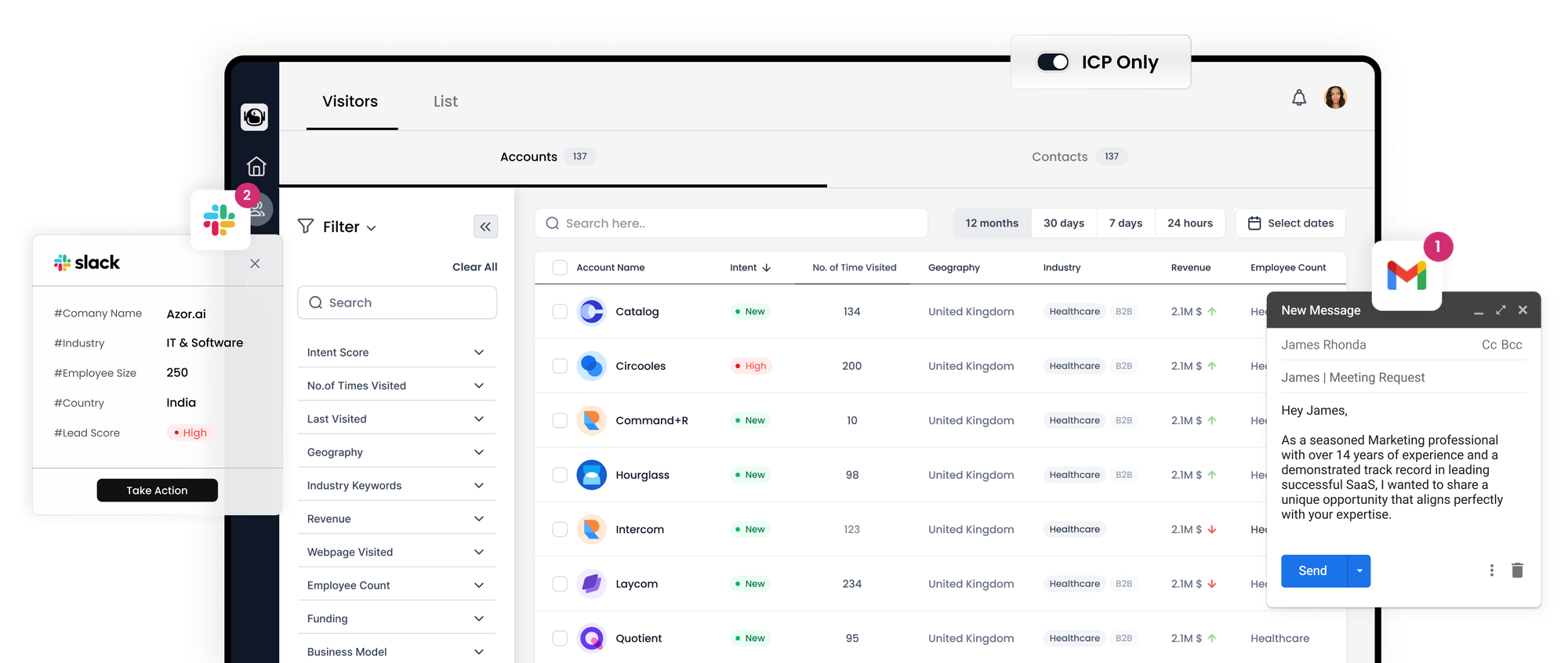Leveraging Automation in B2B Marketing: Approaches and Significance

In the swiftly evolving digital marketplace, automation stands as a vital component for the success of B2B enterprises. This is particularly evident in B2B marketing, where the volume of data needed to craft personalized and compelling digital experiences makes automation indispensable for creating influential and efficient marketing campaigns.
Here, we delve into the facets of B2B marketing automation, examining its definition, the distinction from B2C, its critical importance, and how businesses can harness automation technologies effectively.

Defining B2B Marketing Automation
B2B marketing automation involves delegating tasks and processes to digital systems. This shift from manual effort to software solutions enables B2B organizations to focus on value-adding activities rather than routine marketing tasks.
The application of automation spans across B2B organizations, with platforms like Microsoft’s Power Platform enhancing automation and connectivity within Microsoft 365 applications. The prevalence of automation is particularly noticeable in B2B marketing, where complex operations demand significant data handling and repetitive tasks. Manual data analysis and task execution would be impractical, given the costs and time involved.
Contrasting B2B and B2C Marketing Automation
While the B2C sector has paved the way for innovative automation applications, the B2B domain has customized these strategies to meet its unique requirements, resulting in noticeable distinctions:
Channels: B2C entities utilize a vast array of channels for customer outreach. In contrast, B2B firms also use multiple channels, but with a heavier reliance on email communication.
Customer: B2C marketing targets individual consumers, often leveraging emotional appeals. B2B marketing, conversely, engages buying committees that can number over ten decision-makers and is characterized by a more analytical purchasing process.
Content: The nature of B2B content significantly differs from B2C due to the lengthier and more intricate B2B buying cycle. B2B content is often more diverse and strategically designed to engage prospects at specific stages of their journey.
The Importance of Marketing Automation in B2B
Why Marketing Automation is Indispensable
Marketing automation brings numerous advantages that typically fall into three major categories:
Cost Efficiency: Automated processes are generally more economical than their manual counterparts. Despite initial setup costs, automation leads to substantial savings over time.
Speed and Efficiency: It streamlines workflows, increasing efficiency dramatically. Given the vast amounts of data involved in modern B2B marketing, automation becomes not just beneficial, but essential for running successful campaigns.
Reliability and Accuracy: Digital solutions usually outperform humans in accuracy. Marketing automation allows you to have confidence in your data and processes, eliminating common human errors such as oversight or incorrect data entry.
With an understanding of marketing automation's overarching role, let's explore practical applications within B2B contexts.
Practical B2B Marketing Automation Applications
1. CRM Automation
Post-sale marketing is just the beginning of customer engagement. Maintaining and nurturing customer relationships is key, and CRM systems like Dynamics, Salesforce, and HubSpot can automate various customer management tasks, from follow-up emails to data entry, enhancing customer service and relationship management.
2. Email Marketing Automation
B2B communications often involve routine acknowledgments. Automation efficiently handles such email interactions, freeing up staff for more complex tasks.
3. Marketing and Sales Synergy
The fusion of marketing and sales teams benefits from automation's lead analysis capabilities, allowing for prioritization based on potential for conversion.
4. Landing Page Personalization
Automation allows for the personalization of landing pages, catering to different customer segments and enhancing user experience with tools like Ibexa DXP.
5. Social Media Engagement
Automation meets the high-pace demands of social media, enabling timely responses and consistent engagement without constant manual oversight.
6. Online Form Processing
Instead of manually handling every inquiry or feedback form, automation sorts and directs the data, ensuring efficient and accurate customer service follow-ups.
7. Customer Re-engagement
Automated communications can gently prompt customers to restock or reorder, based on past purchase behaviors or specific customer actions like website visits.
8. Data Analytics Automation
Instead of manual data analysis, integrated reporting modules or tools like PowerBI can process vast amounts of data, delivering insights necessary for informed decision-making.
In conclusion, marketing automation is no longer just an option for B2B companies; it's a strategic necessity that enables more personalized customer experiences, more efficient operations, and data-driven decision-making to stay competitive in the digital age.
Top B2B Marketing Automation Platforms and Strategies
Navigating through the multitude of B2B marketing automation platforms can be daunting. For B2B entities, the go-to choices often include Salesforce, Marketo, Eloqua, Pardot, and HubSpot. Each of these platforms offers unique benefits and potential drawbacks. It's crucial to evaluate which one aligns with your business objectives and operational needs.
When choosing, consider these key factors:
User Experience: Opt for a platform with a user-friendly interface for ease of use.
Integration Capabilities: Confirm that the platform can seamlessly integrate with your current software ecosystem.
Cost-Effectiveness: Evaluate the platform's return on investment by assessing cost-per-lead in conjunction with the subscription fees.
Functional Features: Define your objectives for marketing automation and ensure the platform provides the necessary features to achieve them.
Customer Support: Consider the quality of the provider's customer support as it will be vital for troubleshooting and maximizing platform utility.
Essential B2B Marketing Automation Tactics
1. Lead Scoring
Lead scoring involves assigning a value to each lead based on their engagement and potential conversion likelihood. Systems differ, but generally, customer interactions are assigned points which culminate to prioritize sales focus. Automation platforms like Marketo or HubSpot can efficiently handle lead scoring, thereby optimizing the sales process.
2. Lead Nurturing
B2B purchasing decisions require extensive information. Automating email sequences with relevant and educational content helps warm leads up for sales contact. The response to these emails guides the subsequent nurturing steps, tailoring the journey to each lead's engagement level.
3. Chatbot Signposting
Chatbots are underutilized in B2B marketing. They are especially useful for leads in the research phase, providing answers and resources without human intervention. A chatbot's signposting function can direct leads to pertinent information, streamlining the early engagement process.
4. Trigger Marketing
This tactic automates marketing responses to specific actions by leads. CRM metrics can serve as triggers for personalized communications, creating more targeted and satisfying customer interactions. For instance, if a lead explores a particular product page, you can automate the delivery of related content to them.
By implementing these automation platforms and tactics, B2B marketers can create more efficient, personalized, and data-driven campaigns that resonate with their target audience and drive conversions.
